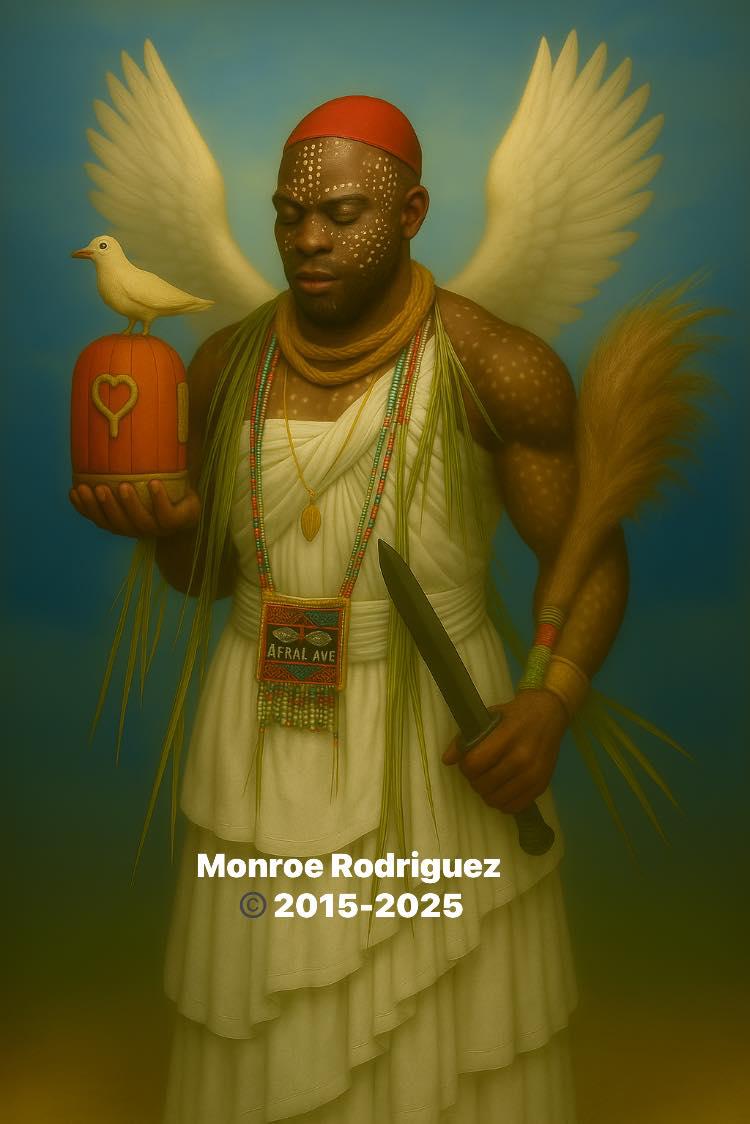
Ori: The Divine Blueprint Within—Yoruba Metaphysics of Destiny, Agency, and Self
The concept of Ori is one of the crown jewels of Yoruba spirituality—a profound synthesis of theology, psychology, and practical philosophy. Whether you approach it as a practitioner, a curious outsider, or a student of world religions, understanding Ori is to glimpse how the Yoruba see the connection between the human and the divine, destiny and choice, the external and the innermost self.
What Is Ori?
At its simplest, Ori means “head” in Yoruba. But in the worldview of Yoruba cosmology, Ori is much more than a body part. Ori is the inner head—your spiritual intuition, personal divinity, and the seat of your destiny (ayanmo).
Before entering this world, Yoruba belief holds that each soul stands before Olodumare (the Supreme Being) and selects an Ori—a unique life path, purpose, and the spiritual “blueprint” that shapes one’s talents, challenges, and fate. This pre-incarnate choice is imagined as taking place at the “spiritual marketplace” (Ajala’s workshop), as described in classical Yoruba oral literature and by scholars such as Wande Abimbola (1976).
Ori and the Structure of the Person
In traditional Yoruba thought, the human being is not a simple body-spirit duality. Instead, there are several components:
- Ara – the physical body
- Emi – spirit or life-breath
- Okan – heart, center of emotion and moral will
- Ese – legs, symbolic of agency and action
- Ori – the metaphysical head, the chooser and carrier of destiny
Of all these, Ori is the most crucial. The Yoruba proverb teaches:
“Ori la ba bo, a ki i bo orisa; Ori ni o gbe ni laiye.”
“It is one’s Ori that one worships, not the Orisa; Ori is what helps one succeed in the world.”
No matter how much one seeks help from Orisa (divine powers), if their Ori is not honored, alignment and success will be difficult.
Ori: Destiny and Personal Agency
Unlike Western notions of fate as inescapable, the Yoruba model weaves together destiny and agency. While the path (ayanmo) is chosen before birth, each person remains responsible for their actions. Ori is both the “blueprint” and the personal deity—guiding, witnessing, and sometimes correcting us. As Segun Gbadegesin (1991) explains, misalignment with Ori—through poor choices, spiritual neglect, or lack of self-respect—can result in obstacles or repeated failures.
This is why Yoruba elders might advise: “Check with your Ori.” Sometimes, the answer to setbacks is not more external ritual, but a return to the self—reconciliation, offerings, and honest self-examination.
Ritual, Reverence, and Realignment
Honoring Ori is essential. This can be as simple as daily prayer or as formal as ritual offerings of water, kola nut, coconut, or other sacred items—sometimes with the guidance of a babalawo (Ifa priest/diviner).
- The purpose is to “cool” or “strengthen” the Ori, seeking clarity, balance, and support from one’s own inner divinity.
- Rituals for Ori exist alongside those for Orisa, but the Yoruba maintain: “Ori comes first.”
In many diaspora traditions—such as Candomblé, Santería, and modern Ifá practice—this focus on Ori endures, reminding practitioners that every blessing, challenge, or transformation must ultimately be processed through the self.
Ori and Modern Life
Today, the wisdom of Ori is more relevant than ever. In a world that encourages constant comparison and distraction, Yoruba philosophy calls us back to our core:
- Authentic living
- Personal accountability
- Spiritual alignment
- Self-understanding
Honoring your Ori is not about passively accepting fate. It’s about cultivating the discernment to recognize your unique path and the courage to walk it.